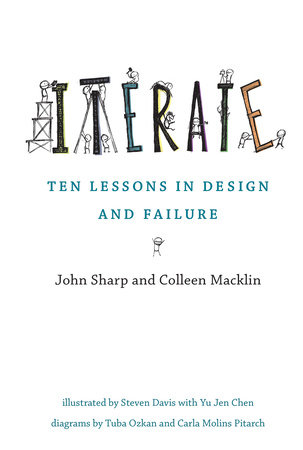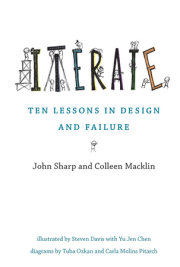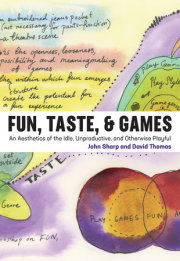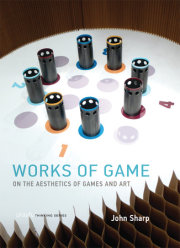How to confront, embrace, and learn from the unavoidable failures of creative practice; with case studies that range from winemaking to animation.Failure is an inevitable part of any creative practice. As game designers, John Sharp and Colleen Macklin have grappled with crises of creativity, false starts, and bad outcomes. Their tool for coping with the many varieties of failure: iteration, the cyclical process of conceptualizing, prototyping, testing, and evaluating. Sharp and Macklin have found that failure—often hidden, covered up, a source of embarrassment—is the secret ingredient of iterative creative process. In Iterate, they explain how to fail better.
After laying out the four components of creative practice—intention, outcome, process, and evaluation—Sharp and Macklin describe iterative methods from a wide variety of fields. They show, for example, how Radiolab cohosts Jad Abumrad and Robert Krulwich experiment with radio as a storytelling medium; how professional skateboarder Amelia Bródka develops skateboarding tricks through trial and error; and how artistic polymath Miranda July explores human frailty through a variety of media and techniques. Whimsical illustrations tell parallel stories of iteration, as hard-working cartoon figures bake cupcakes, experiment with levitating office chairs, and think outside the box in toothbrush design (“let's add propellers!”). All, in their various ways, use iteration to transform failure into creative outcomes. With Iterate, Sharp and Macklin offer useful lessons for anyone interested in the creative process.
Case Studies:
Allison Tauziet, winemaker; Matthew Maloney, animator; Jad Abumrad and Robert Krulwich, Radiolab cohosts; Wylie Dufresne, chef; Nathalie Pozzi, architect, and Eric Zimmerman, game designer; Andy Milne, jazz musician; Amelia Bródka, skateboarder; Baratunde Thurston, comedian; Cas Holman, toy designer; Miranda July, writer and filmmaker








